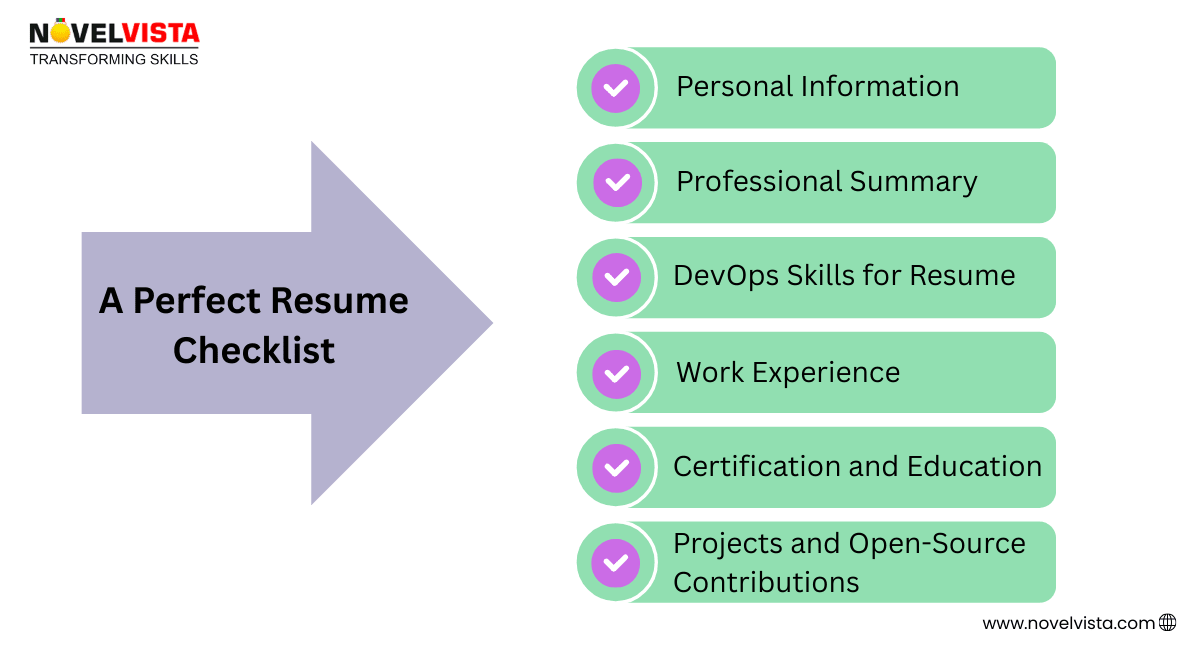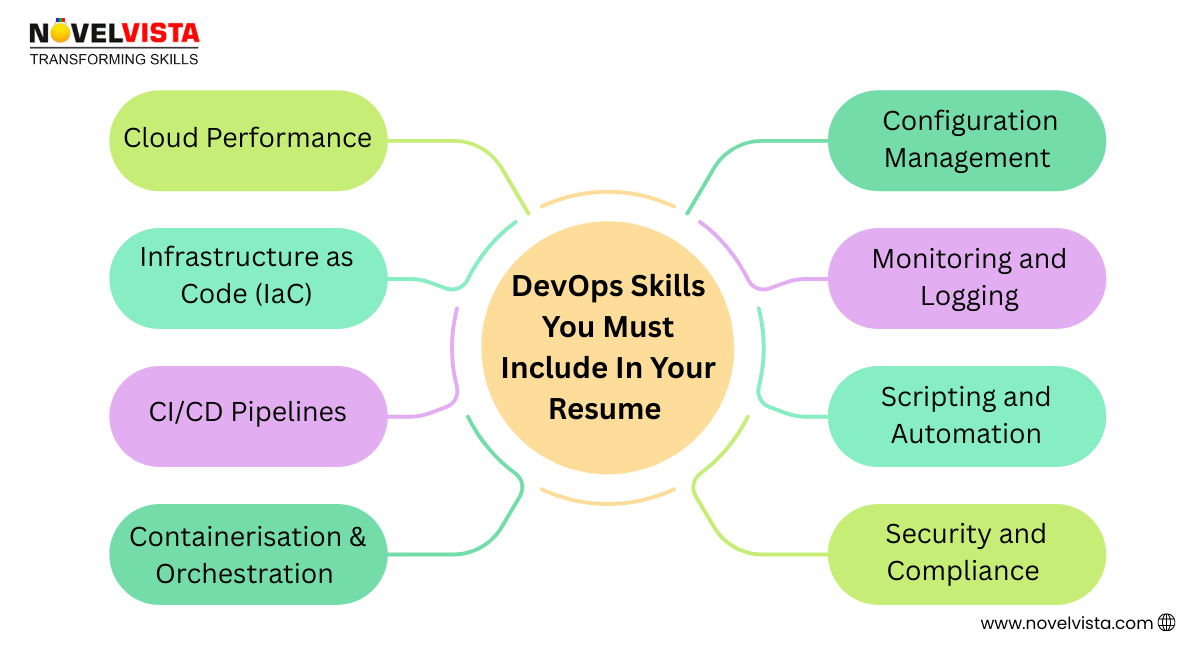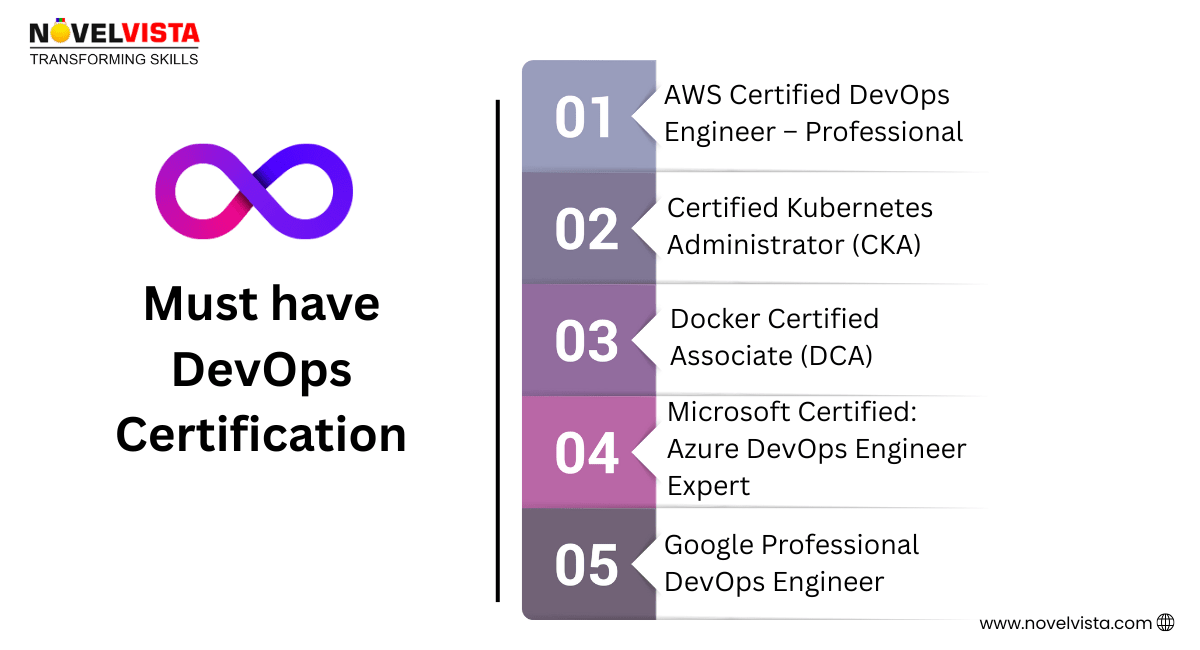Your DevOps resume is not just a piece of paper which tells you about you—it's your ticket to achieve your dream job. Employers spend just 6–10 seconds scanning a rescue, so making yours unique is a must. Whether you are an experienced engineer or just a beginner, an organized resume showing your skills, experience, and achievements can make all the difference.
In this article, we will dive deep into some important DevOps resume tips, common mistakes people make and how to avoid them, and step-by-step plan to make a resume that guarantees your hiring
As a DevOps engineer with experience, it is crucial to have a well-crafted resume that stands out from the competition.
Your resume is your first impression to potential employers, so it needs to effectively showcase your skills, experience, and achievements.
In this guide, we will discuss the importance of a well-crafted resume, the key components to include, tips for formatting and structuring, how to highlight your skills and experience, and much more.
By the end of this guide, you will have the knowledge and confidence to create an impressive DevOps resume that will grab the attention of hiring managers.
A well-crafted resume is essential for any job application, and this holds true for the field of DevOps as well.
With the competitive nature of the job market, recruiters and hiring managers often spend only a few seconds scanning each resume.
Therefore, it is important to make your resume visually appealing, easy to read, and tailored to the specific job you are applying for.
A standout resume will not only increase your chances of landing an interview but will also demonstrate your professionalism and attention to detail.
It doesn't matter how skillful you are, a bad resume can bring you a lot of negative feedback from the interview. Follow this perfect DevOps resume format to draft a clean, professional, and ATS-friendly resume.

Want a thorough DevOps resume sample? Take a look at DevOps Career Roadmap for information into creating your resume effectively.
A strong summary can grab the recruiter’s attention instantly. Whether you’re an entry-level candidate or a seasoned DevOps engineer, tailoring your resume to the job description is crucial.
Results-driven DevOps Engineer with 5+ years of experience in cloud infrastructure, automation, and CI/CD pipelines. Proficient in AWS, Terraform, Kubernetes, and Jenkins, with a proven track record of reducing deployment time by 50% and improving system reliability. Passionate about optimizing workflows and enhancing security measures.
Aspiring DevOps Engineer with hands-on experience in Docker, Kubernetes, and CI/CD automation. Strong foundation in Python scripting and cloud computing. Seeking an opportunity to apply automation skills and improve software delivery processes.
Need help preparing for interviews? Check out DevOps Interview Questions for top questions and answers.
Your skills section should highlight the most in-demand DevOps tools and methodologies.

Want to see how DevOps compares to Site Reliability Engineering? Read DevOps vs SRE to understand the differences.
Before going into the key components of a DevOps resume, it is important to have a clear
Vision of the role of a DevOps engineer.
A DevOps approach integrates software development and IT operations, focusing on collaboration, communication, and integration between the two.
DevOps engineers are responsible for managing the entire software development lifecycle, from planning and development to deployment and monitoring.
They streamline the processes, automate tasks, and ensure efficient and reliable delivery of software.
By understanding the role of a DevOps engineer, you can tailor your resume to highlight the skills and experiences that are most relevant to the position.
When crafting a standout DevOps resume, there are several key components that you should include to effectively showcase your qualifications. These components include:
You should include your full name, professional email address, phone number, and LinkedIn profile (if applicable). Your contact information should be easily visible at the top of your resume.
Highlight your experience, skills, and career goals in a concise summary or objective statement. This section should grab the attention of the reader and provide a brief overview of your qualifications.
List your technical skills, both hard and soft, that are relevant to the DevOps field. Include programming languages, tools, methodologies, and any other relevant skills that you possess.
Start with your most recent position and describe your work experience. Describe your responsibilities and accomplishments, along with the business name, job title, and dates of employment. When possible, use action verbs and quantify your achievements.
List your educational background, including degree(s) earned, university name, and graduation date. List applicable certifications in this section too, if you hold any.
Highlight any technical projects you have worked on, either independently or as part of a team. Include a brief description of the project, your role, and the technologies used. This will demonstrate your practical skills and experience.
Include any relevant certifications or training programs you have completed. This will showcase your commitment to professional development and your expertise in specific areas of DevOps.
If you have any additional information that is relevant to the position, such as open-source contributions, publications, or speaking engagements, include them in this section.
You can note that references are available upon request, but listing them on your resume is optional.
The formatting and structure of your resume play a crucial role in creating a standout document.
Here are some tips to consider:
Strive to keep your resume to 1-2 pages in length. Use concise language and bullet points to convey information effectively.
Choose a clean and professional-looking font, such as Arial or Calibri, and use consistent formatting throughout your resume. Avoid using excessive colors or graphics.
Arrange your resume in a logical order, starting with your contact information and ending with your references (if included). Use clear headings and subheadings to separate each section.
Use bullet points to list your responsibilities and achievements in each job or project. Begin each bullet point with an action verb to make your statements more impactful.
Before submitting your resume, proofread it carefully for any spelling or grammatical errors. It is also helpful to have someone else review your resume for a fresh perspective.
When crafting your DevOps resume, it is crucial to highlight your skills and experience in a way that demonstrates your qualifications for the position. Strategies to effectively highlight your skills and experience include:
Thoroughly review the job description to pinpoint the employer's preferred abilities and qualifications. Tailor your resume to emphasize these skills and align your experience with the requirements of the position.
Use metrics and numbers to demonstrate your accomplishments when possible. Rather than stating "Implemented automation processes," convey "Implemented automation processes that reduced deployment time by 50%."
Provide specific examples of projects or tasks that demonstrate your skills and experience. This will help hiring managers understand the scope of your work and the impact you have made.
DevOps is a highly collaborative field, so it is important to highlight your ability to work effectively in a team. Include examples of projects where you collaborated with other team members and achieved successful outcomes.
One of the most effective ways to showcase your skills and experience as a DevOps engineer is by highlighting your technical projects and achievements. Strategies to accomplish this effectively include:
Provide a brief description of the technical project, including its purpose, scope, and technologies used. This will give hiring managers a context for understanding your role and contributions.
Detail your specific responsibilities within the project, including any leadership or decision-making roles you held. This will demonstrate your ability to take ownership and drive projects to successful completion.
List the specific technologies, tools, and methodologies that you utilized during the project. This will show your proficiency in these areas and make your resume more keyword-rich for applicant tracking systems (ATS).
Whenever possible, quantify the impact of your technical projects. For example, you could mention how your project reduced system downtime, improved efficiency, or increased customer satisfaction.
Certifications and training programs are valuable additions to your DevOps resume, as they demonstrate your commitment to professional growth and your expertise in specific areas. Here are some tips for including relevant certifications and training:
Include the names of the certifications and training programs you have completed, along with the issuing organization and date of completion. Position this section following either the education or skills portions.
If you have multiple certifications, prioritize the ones that are most relevant to the DevOps field or the specific job you are applying for. This enables hiring managers to rapidly recognize your fit for the role.
Give a brief description of each certification or training program, highlighting the skills or knowledge that it covers. This will provide additional context for hiring managers who may not be familiar with the certification.
To increase your chances of getting noticed by hiring managers, it is important to tailor your DevOps resume to the job description. Here are some tips for doing this effectively:
Carefully read and analyze the job description to identify the key skills, qualifications, and responsibilities that the employer is seeking. Make a list of these keywords and phrases.
Integrate the keywords and phrases from the job description throughout your resume, particularly in the skills, experience, and projects sections. This will help your resume pass through applicant tracking systems (ATS) and demonstrate your alignment with the position.
Tailor your objective statement to reflect the specific job you are applying for. Highlight the skills and experiences that are most relevant to the position and demonstrate your enthusiasm for the role.
Emphasize the experience and projects in your resume that align most closely with the requirements of the job. This will show hiring managers that you have the necessary skills and experience to excel in the role.
Certifications validate your expertise and make your resume more competitive.

Looking for the best certification? Check out the DevOps Practitioner Certification Course to advance your skills.
Before submitting your DevOps resume, it is crucial to proofread and edit it carefully to ensure it is error-free and effectively communicates your qualifications. Here are some tips for proofreading and editing your resume:
Proofread your resume thoroughly checking for any spelling or grammar errors. Pay close attention to details, such as punctuation, capitalization, and verb tenses.
Check that your resume has a consistent formatting style throughout. Ensure that headings, subheadings, bullet points, and fonts are consistent and visually appealing.
Eliminate any irrelevant or outdated information that does not add value to your resume. Keep your resume focused and concise.
Request a trusted friend, coworker, or mentor to critique your resume. They can provide valuable feedback and catch any errors or inconsistencies that you may have missed.
Even the most skilled engineers lose job opportunities due to these avoidable mistakes.
Want insights into the latest DevOps trends? Read DevOps Trends to stay ahead of the curve.
Crafting a standout DevOps resume with one year of experience requires careful thought, attention to detail, and a deep understanding of the field.
By following the guidelines outlined in this guide, you will be able to create a resume that effectively showcases your skills, experience, and achievements.
Remember to tailor your resume to the specific job you are applying for, proofread it carefully, and continuously update it as you gain new skills and experiences.
And if you want to get a top class training that can forge a bright future for your DevOps career then we recommend checking out our DevOps Foundation & Training Certification .
A well-structured DevOps resume isn’t just about listing your skills—it’s about telling a compelling story of how you drive automation, efficiency, and reliability in software delivery.
Your DevOps resume is the key to landing your next big opportunity—make it count!
Put your resume to the test and explore top DevOps certifications that can give you the competitive edge.
Confused about our certifications?
Let Our Advisor Guide You